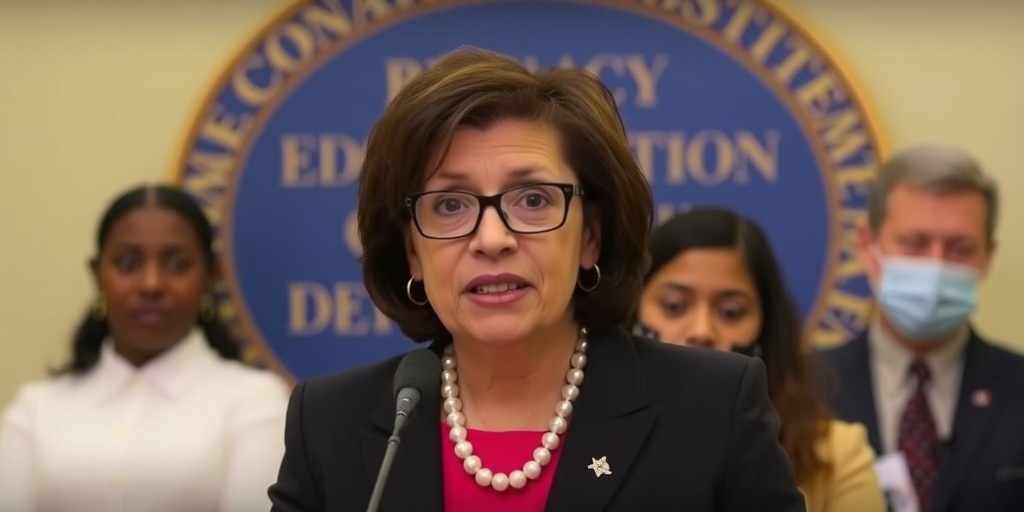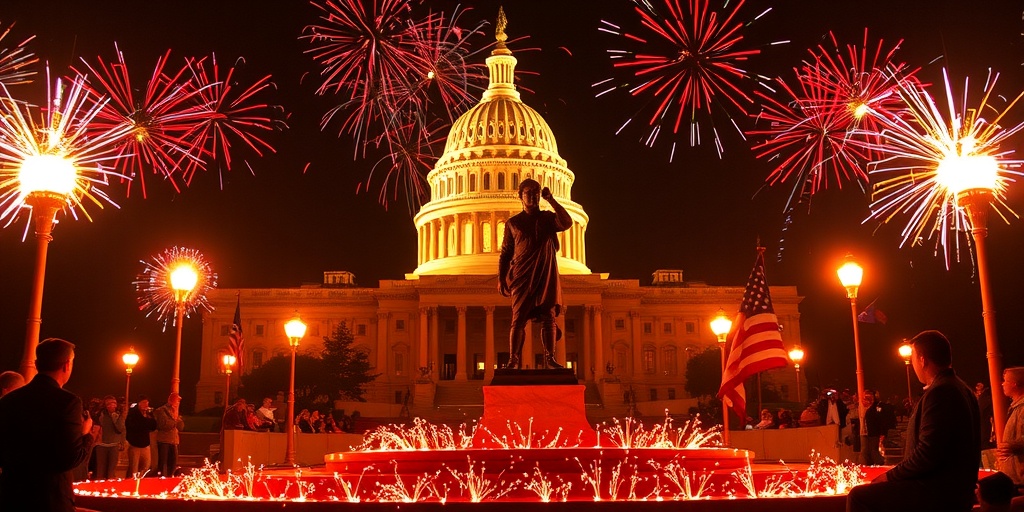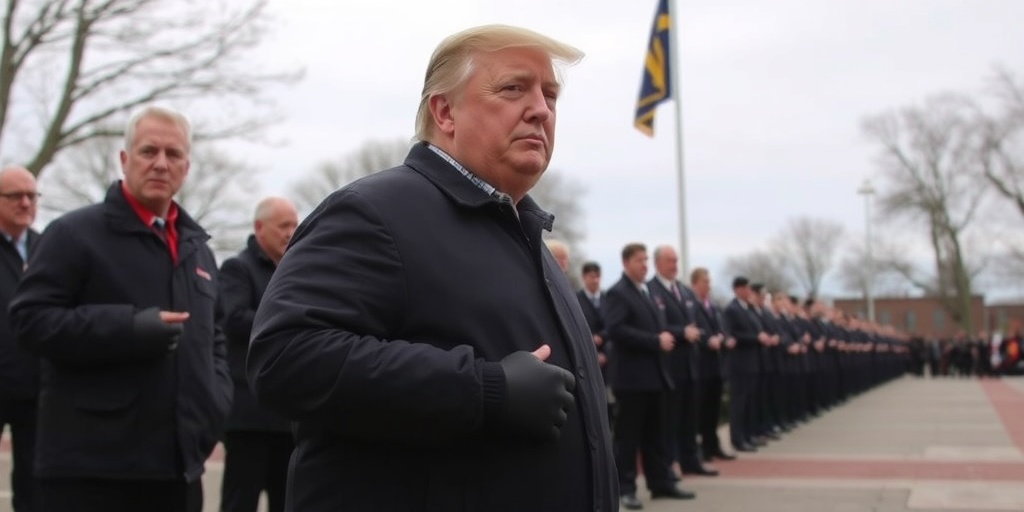Now Reading: Trump Calls for Investigation into Political Bias in Justice Department and Agencies
-
01
Trump Calls for Investigation into Political Bias in Justice Department and Agencies
Trump Calls for Investigation into Political Bias in Justice Department and Agencies

Title: Trump Issues Executive Order Targeting Alleged Political Bias in Federal Law Enforcement
In a sweeping move, former President Donald Trump has signed an executive order aimed at addressing what he describes as the "weaponization" of the Justice Department and other federal agencies under the Biden administration. This order directs the Attorney General to investigate potential instances of political bias within various federal law enforcement agencies, including the Securities and Exchange Commission (SEC) and the Federal Trade Commission (FTC). Such scrutiny arises from claims made by Trump and his supporters who allege that federal resources have been misused to target political opponents.
The executive order is noteworthy not only for its intentions but also for its ambitious scope. Alongside the mandate for the Attorney General, Trump has requested that the Director of National Intelligence conduct a parallel investigation into potential bias in intelligence agencies. The findings from both inquiries are expected to be reported back to the White House, along with recommendations for what the order calls "remedial action." However, the executive order notably lacks a specified timeline for these reviews, leaving questions about when or how quickly these investigations will unfold.
Additionally, the exact nature of the reviews remains somewhat ambiguous. It is unclear whether the investigations will follow the established format of ethics inquiries commonly conducted by the Justice Department’s own inspector general, or if they will escalate into criminal investigations by prosecutors. The terminology used in the order creates further uncertainty regarding its broader intentions, particularly concerning its call to "ensure accountability for the previous administration’s weaponization of the Federal government against the American people."
The executive order, which is labeled “Ending the Weaponization of the Federal Government,” opens with a series of assertions that portray the Biden administration as engaging in actions that undermine democratic principles. Trump’s order accuses the current administration and its allies across the nation of orchestrating an extraordinary abuse of prosecutorial authority, an allegation that Trump frames within the context of a compromised democratic process.
The language in the document, while intense, hints at a broader investigation that could extend to the actions of local law enforcement and district attorneys. It suggests that the review may encompass judicial decisions made by district attorneys in key jurisdictions, such as Manhattan and Fulton County, Georgia. These areas have seen legal challenges against Trump, which could be scrutinized should the review extend to these officials.
The executive order also explicitly criticizes the Justice Department’s response to the January 6, 2021, insurrection at the U.S. Capitol. Trump points to the prosecution of over 1,500 individuals connected to the events of that day, arguing that these cases represent a "ruthless" application of justice that disproportionately affects his supporters and conservatives more broadly.
Critics of the executive order have raised concerns about the potential for politicizing federal investigations further and using them as a tool for retaliation against political adversaries. The ambiguity surrounding the order’s implementations raises questions about how the Justice Department and other agencies will respond, and whether there will be any legal ramifications for the officials involved.
As the political landscape remains sharply divided, Trump’s executive order signals a continuation of the contentious narrative surrounding his presidency and the ongoing investigations into his conduct. The potential for a renewed focus on the actions of the Biden administration could set the stage for a prolonged political battle, particularly as Trump considers a third run for the presidency in 2024.
In conclusion, Trump’s latest executive order serves as both a reflection of his ongoing grievances regarding the current administration and a strategic move to solidify his support among his base. By calling for investigations into alleged bias within the federal government, Trump not only positions himself as a defender of conservative values but also reignites debates over the integrity of American democratic institutions and their treatment of political figures across the spectrum. As the specific details of the investigations unfold, the political ramifications of this executive order are likely to reverberate throughout the upcoming election cycle and beyond.
Stay Informed With the Latest & Most Important News
Previous Post
Next Post
-
 01New technology breakthrough has everyone talking right now
01New technology breakthrough has everyone talking right now -
 02Unbelievable life hack everyone needs to try today
02Unbelievable life hack everyone needs to try today -
 03Fascinating discovery found buried deep beneath the ocean
03Fascinating discovery found buried deep beneath the ocean -
 04Man invents genius device that solves everyday problems
04Man invents genius device that solves everyday problems -
 05Shocking discovery that changes what we know forever
05Shocking discovery that changes what we know forever -
 06Internet goes wild over celebrity’s unexpected fashion choice
06Internet goes wild over celebrity’s unexpected fashion choice -
 07Rare animal sighting stuns scientists and wildlife lovers
07Rare animal sighting stuns scientists and wildlife lovers





















